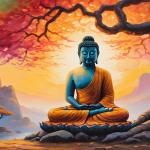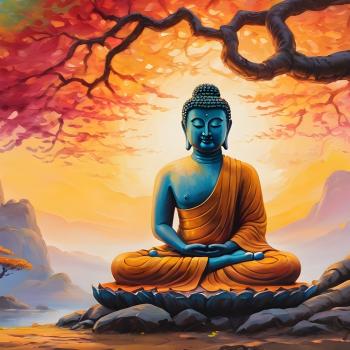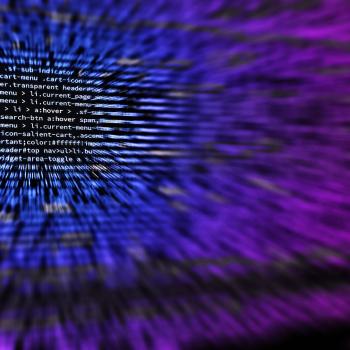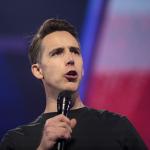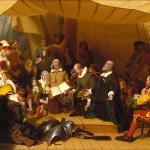Buddhism does not believe in a permanent, unchanging self. Of course, each of us has forms, feelings, perceptions, thoughts, and awareness. Also, these attributes interact with our influences— our chemistry, our conditioning, our culture, and our experience. They create what we think of as a “self.” But, Buddhists do NOT believe that this is a permanent, unchanging entity.
In the Eastern worldview, Ultimate Reality is immanent, as well as transcendent. The true Self (or “no-self” in Buddhism) is one with Ultimate Reality. The egoic self can obscure the true Self, and we can become enlightened when we realize the true Self (or “no-self.”) Here, “no-self” might suggest lack of separation, rather than lack of substance.
There is a similar concept in Hinduism, where Brahman is Ultimate Reality, Atman is our particular part of Ultimate Reality (which may or may not be individual) and Atman is Brahman. Assuming that Atman is NOT individual, then my Atman and your Atman are one true Self, not unique to either of us. This lack of separation is similar to the Buddhist concept of “no-self.”
The Western worldview is based in personal terms. Our economy is based on personal gain. Our politics are based on personal responsibility, and our theology is based on personal salvation. But, personhood is cultural. In some languages, there is no first person singular (“I” or “me”) or no distinction between first person singular and first person plural (“we” or “us.”)
So, the concept of “no-self” can be difficult for some Westerner readers to understand. I wrote here about self and soul. I wrote here about free will, a related topic that is really interesting.
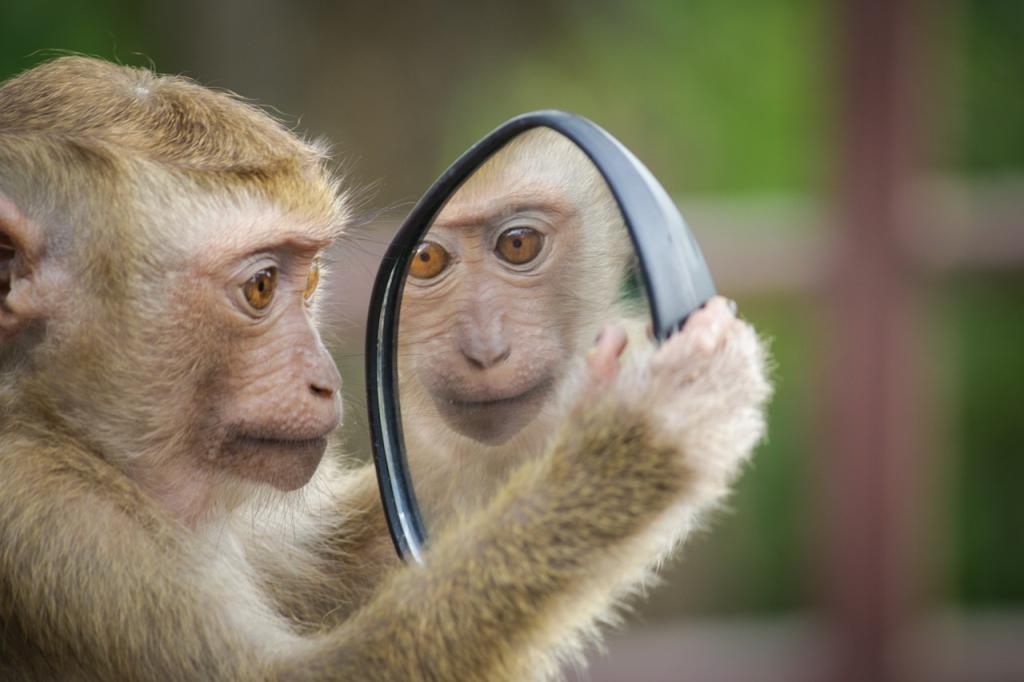
Can We Locate an Essential Self?
Ramana Maharshi, a Hindu sage, practiced self-inquiry. “Who am I?” is such an inquiry. Here, we realize that we are not essentially or eternally any of the characteristics that we think we are. Are you a father or mother? A conservative or a liberal? An extrovert or an introvert? You have NOT always fit any of these descriptions. All of them are ephemeral.
“Who am I?” is a simple, but profound, exercise. If we peel away our personalities, do we find a core (a self) like peeling an apple, or no core (“no-self”) like peeling an onion?
So, can we locate an essential self, separate and apart from the sense of self that we construct from our chemistry, our conditioning, our culture, and our experiences? Speaking for myself, I have NOT been able to locate an essential Larry apart from these influences. (The search for a soul is even more elusive. Do I have one? What is it? What does it do? Where does it go?)
Asked another way, did baby Larry have an essential Larry, separate and apart from the chemistry that he was born with and the conditioning, culture, and experiences that he was yet to see? Speaking for myself, I believe that baby Larry was a blank slate. (Larry is still a blank slate, but we can see the evidence of his influences, which we call his “self.”)
How do we live if we do NOT believe in a permanent, unchanging self? Can we become bland and lose our individuality? Do we become disinterested and lose our compassion? Will we become rudderless and lose our direction? No. We appreciate the beautiful, diverse and fascinating people that we meet, and we realize that all of us are ever-changing products of our influences.
When we attribute actions to changing circumstances, rather than fixed characters, we can look beyond knee-jerk assumptions to actually realize what is happening.
Can “No-Self ” Be Compassionate?
For me, this awareness of “no-self” has helped me to lead a more compassionate life.
In a well-known Zen story, a monk is floating in a boat on a foggy lake when another boat collides with his boat. He jumps up, angrily cursing and screaming at the pilot in the other boat, until he realizes that there is no pilot in the other boat. His anger dissipates. He was angry because he personalized the situation. He assumed carelessness or malice where none existed.
Closer to home, the concept of “no-self” creates a pause between action and reaction. Assume that my phone rings. I identify the caller, and I recall some difficult conversations in the past. Already, I am personalizing the situation, based on the baggage that I bring into the conversation. For me, it is better to wipe the slate clean and to proceed with an open mind.
Assume that a friend says something that triggers me. “He is attacking me,” I think. Already, I am personalizing the situation, seeing a personal attack that his person launched on my person. I am reacting, not reflecting. For me, it is better to see that my friend is acting on his influences, to see that I am reacting on my influences, and to proceed with an open heart.
Pause. How is he acting, and why is he acting that way? How am I reacting, and why am I reacting this way? If our hearts are pure, our minds are clear, and our actions are sensible, then we can trust our hearts and minds and actions. But, often, our hearts are not pure, our minds are not clear, and our actions are not sensible. So, personalizing things can complicate them.
Buddhism does not believe in a permanent, unchanging self. Buddhism suggests that we see things as they are, letting loose of our preconceptions and unchallenged assumptions.
So, does acting impersonally, without a sense of self, sound cold and sterile? For me, it can be more compassionate and wise than acting personally, with a sense of self. What do you think?
The Way is a Silver winner in the 2024 Nautilus Book Awards in the Religion/Spirituality of Other Traditions category.
If you want to stay up to date on the latest from You Might Be Right, simply subscribe with your email.



